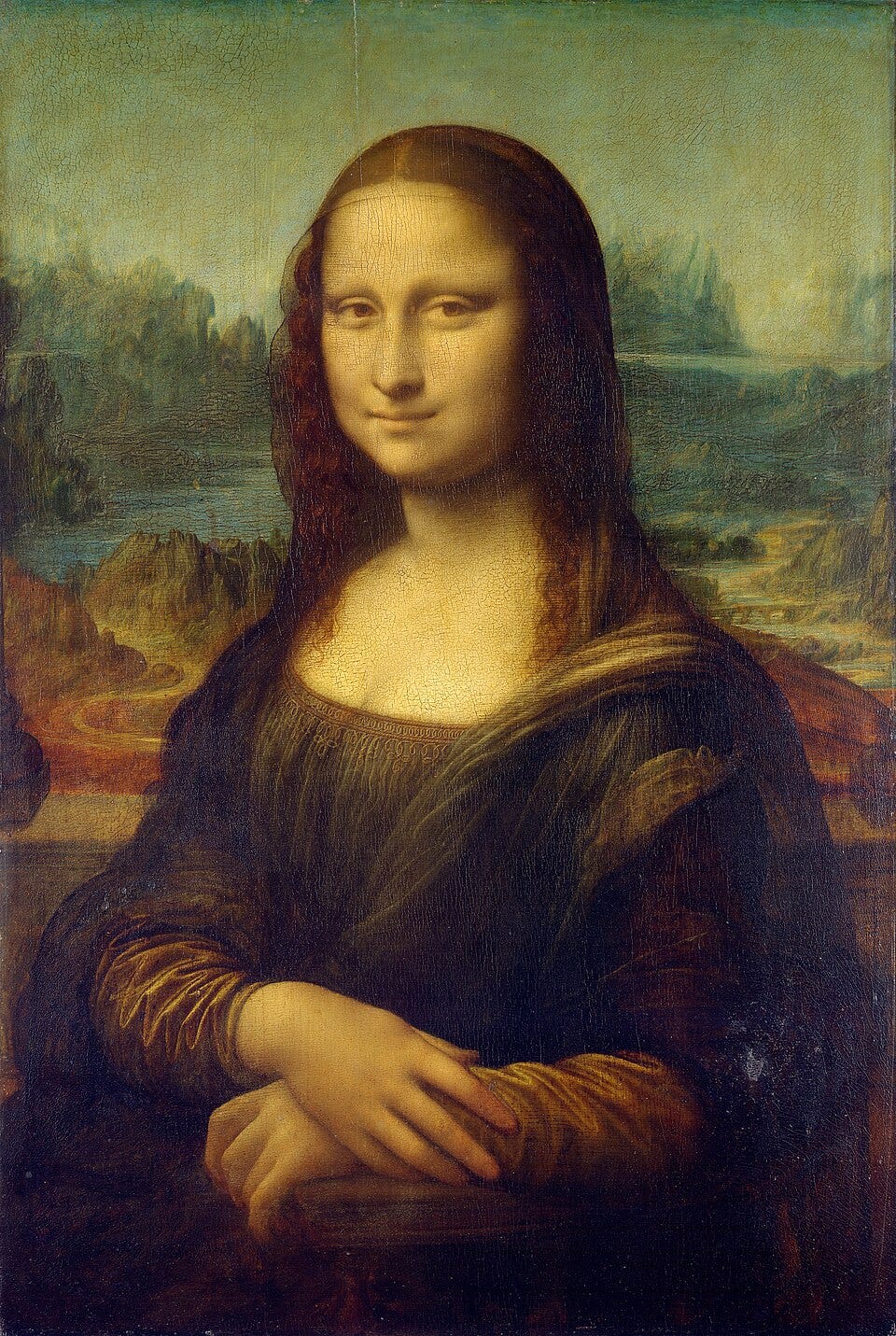LXXXII. Lessons from Leonardo Da Vinci, History's Greatest Polymath
We'll learn from the Life of Leonardo da Vinci, his character, curiosity, discipline, perfectionism, philosophy of beauty, and the art of incompleteness as analyzed by the great Giorgio Vasari.
Welcome! Note that the ‘Neuroscience-based Tools’, ‘Lead to Win’ & the Le Monde Élégant social skills sections are companions for The Stoic Manual to enhance your physical and psychological health, vitality, stress resilience, discipline, focus, motivation, and refine your social skills, relationships & leadership skills for a distinguished life—by Dr. Antonius Veritas
Some days, I can’t even wake up.
Not because I’m lazy. But because I have high standards of living and working. I wonder if my character and conduct would make the Stoics proud. Or if what I’m writing is good enough, if it carries the weight, the rhythmic lyre for the soul, the spark that my readers deserve. That question, am I good enough?, follows me like a ghost.
It happens in surgery too. I’ll watch a senior consultant move through their procedures with effortless command—swagger, finesse, mastery. And I wonder: Will I ever be like that? Or am I doomed to die an ordinary man—unfulfilled, unremarkable, mediocre?
But then I remember: even the greats once struggled. Michelangelo burned with doubt when painting the Sistine Chapel. Montaigne battled ordinariness. They weren’t born legends, they became them. Slowly. Deliberately. By learning from those who came before, and by chiseling away, one rough day at a time. They used their high standards to catapult them into eminence. I reckoned that I too can learn from them.
Niccolò Machiavelli said,
“A prudent man should always follow in the path trodden by great men and imitate those who are most excellent, so that if he does not attain to their greatness, at any rate he will get some tinge of it.
He should do as those prudent archers do who, aware of the strength of their bow when the target at which they are aiming seems too distant, set their sights much higher than the designated target, not in order to reach such a height with their arrow, but instead to be able, by aiming so high, to strike their target."
This passage from Machiavelli was the reason I programmed my mind to make everyone my teacher. I always aim to learn from my friends and enemies, the living and the dead, men and women. I analyze and integrate what works to make them good at what they do, how they handle doubts and demons, how they conduct themselves to be great & admirable and what ruins them so I can avoid it. Because greatness leaves behind its fingerprints, and if you’re paying attention, you can follow the trail. Shoot for the stars, aim for the moon—the saying goes.
That's the theme of today's entry. We'll learn from the Life of Leonardo da Vinci, what drove him toward greatness, his philosophy of discipline, of perfectionism, of beauty, the flaws to his character, and the art of incompleteness as analyzed by the acclaimed writer, painter and art critic, Giorgio Vasari in his book The Lives of The Most Excellent Painters, Sculptors, and Architects.
Click on the hypertext to read the others. 1. Lord Chesterfield & Marcus Aurelius on How to Be A Distinguished Man, 2. Machiavelli’s Warning Against Niceness, 3. Nietzsche’s Consolations for Difficulties, 4. Plutarch on What Made & Ruined Alexander the Great, 5. Lessons from Michelangelo, the Greatest Renaissance Artist
Introduction: Celestial Gifts and Human Hands

Leonardo da Vinci strides through history less as a man and more as a mythic force. Giorgio Vasari, his first biographer, paints him as almost superhuman: “beauty, grace, and talent” rained down upon one person in celestial measure. In Vasari’s account, Leonardo’s every action seemed touched by the divine, each endeavor executed with an ease and elegance that surpassed other mortals. Here was a man of splendid physical presence and strength, with a mind so nimble that no puzzle could elude his solution. Yet behind the marvel lies a mortal—one with restless curiosity and notorious indecision, soaring imagination and very human flaws. In contemplating Leonardo’s life and character, I find not a remote Renaissance genius but a living mentor. His story becomes a mirror: reflecting lessons on beauty, discipline, perfectionism, and the art of embracing our own unfinished genius.
The goal is not just to admire Leonardo, but to see how we can embody his best qualities while gently heeding the warnings of his weaknesses so we can be inspired to live, act and create more fully, with both our feet on the ground and our heads among the stars.
Join 42,000 other readers,
I. The Driving Force of Greatness

Leonardo’s defining trait was


